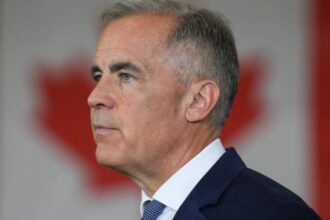Regina’s financial outlook has taken a troubling turn as city officials revealed a staggering $45 million deficit for the upcoming 2024 budget—a figure that threatens to dramatically reshape municipal services and tax rates across Saskatchewan’s capital. The announcement came during Monday’s Executive Committee meeting, where councillors and administrators gathered to begin what promises to be among the most challenging budget negotiations in recent memory.
“We’re facing unprecedented fiscal pressures that require immediate and strategic response,” stated City Manager Niki Anderson during her sobering presentation to the committee. “This deficit represents approximately 9% of our annual operating budget, which places us in a position where difficult decisions cannot be avoided.”
The deficit’s origins are multifaceted, stemming from a perfect storm of economic challenges that have intensified over the past year. Rising inflation has significantly increased operational costs across all city departments, while post-pandemic recovery efforts continue to strain municipal resources. Additionally, Regina has experienced lower-than-projected revenue from property taxes following reassessments and slower growth in commercial development.
Mayor Sandra Masters addressed the gravity of the situation, noting that bridging this gap would require a combination of strategies rather than relying solely on property tax increases. “If we were to address this deficit through property taxes alone, we would be looking at an increase of approximately 17%, which is simply not feasible for our residents,” Masters explained.
The city administration has presented councillors with several potential pathways forward, including service reductions, efficiency measures, fee increases for city services, and strategic use of reserve funds. Each option carries significant implications for residents and businesses across Regina.
Budget documents indicate that infrastructure maintenance may face delays, with several planned capital projects potentially postponed. Community programs, recreational services, and non-essential municipal operations could see reductions in both scope and funding. The documents also highlight potential impacts to transit services, snow removal operations, and community grants programs.
According to financial analysts at the CO24 Business desk, Regina’s situation reflects broader challenges facing municipalities across Canada. Cities nationwide are grappling with inflation-related cost increases while dealing with infrastructure deficits and changing revenue models in the post-pandemic economy.
Ward 3 Councillor Andrew Stevens expressed concern about potential impacts on vulnerable populations. “When we talk about service reductions, we need to be extremely careful about who bears the burden,” Stevens remarked during committee discussions. “Often those most affected are residents who rely heavily on city services and have the least capacity to absorb additional costs.”
The budget deliberation process will unfold over the coming weeks, with administration preparing detailed proposals for council review. Public consultation sessions have been scheduled throughout November, providing residents opportunities to voice concerns and suggestions before final decisions are made in December.
Community response has been swift, with several neighborhood associations and business groups already organizing to advocate for their priorities. The Regina Chamber of Commerce issued a statement calling for “prudent fiscal management that doesn’t place undue burden on the business community during an already challenging economic period.”
The Regina Public Library board, which operates with partial funding from the city, has expressed concerns about potential impacts to their operations. “Libraries are essential community hubs, especially during economic downturns,” noted Library Board Chair Sean Quinlan. “We hope council recognizes the critical role we play in supporting residents through difficult times.”
This deficit arrives at a particularly challenging moment for the city, as Regina continues implementing its Energy and Sustainability Framework—an ambitious climate action plan requiring significant investment over the coming years. How these environmental commitments will be balanced against immediate financial pressures remains an open question.
City administration has promised comprehensive analysis of all potential revenue sources and cost-saving measures before presenting formal recommendations to council. “Every department is being asked to find efficiencies,” noted Barry Lacey, Executive Director of Financial Strategy and Sustainability. “We’re examining all options to minimize impacts on essential services.”
As Regina confronts this formidable financial challenge, residents and council members alike must wrestle with a fundamental question: In an era of fiscal constraints and competing priorities, what kind of city do we want Regina to be, and what sacrifices are we willing to make to get there?
























